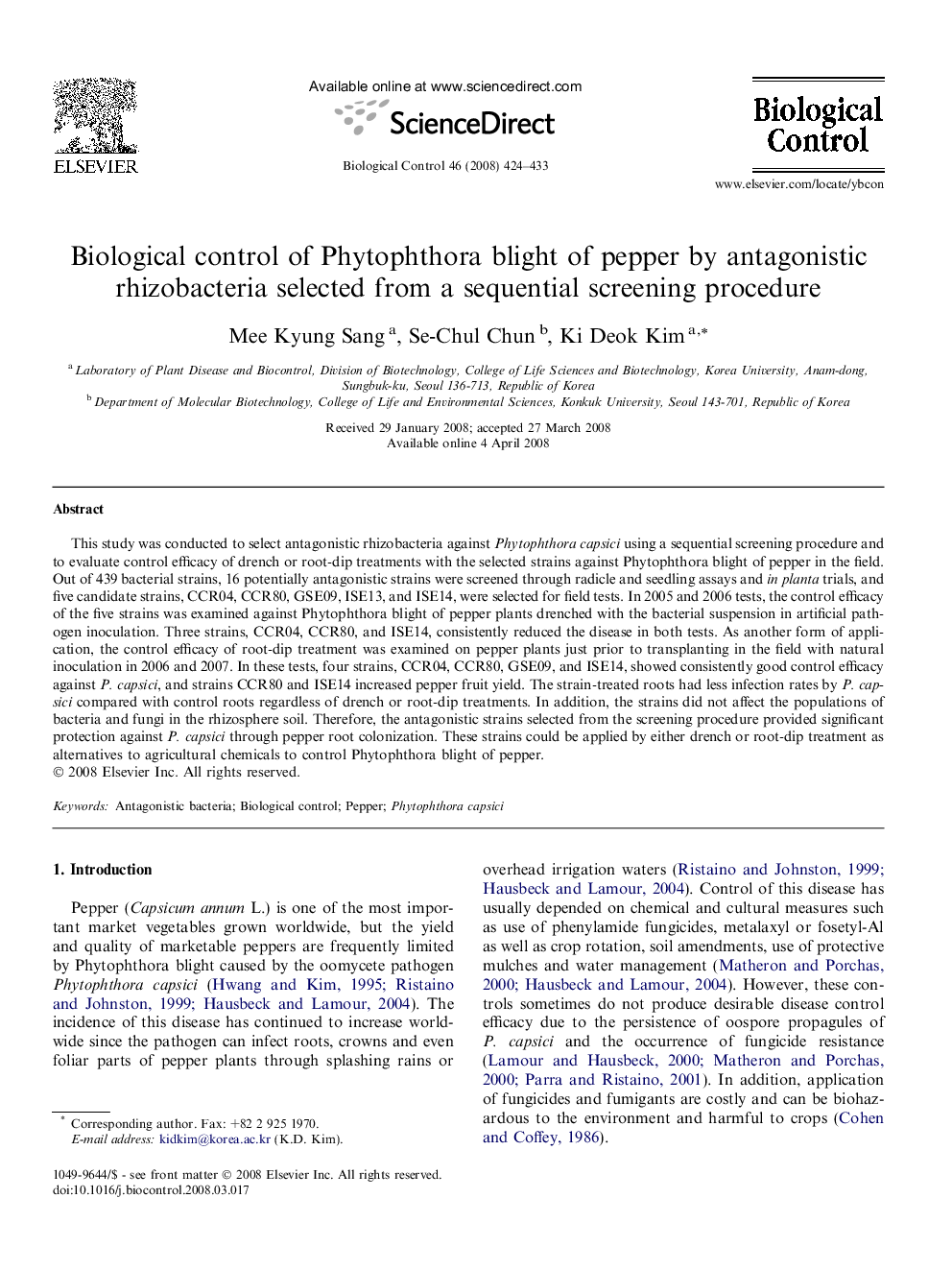| Article ID | Journal | Published Year | Pages | File Type |
|---|---|---|---|---|
| 4504815 | Biological Control | 2008 | 10 Pages |
This study was conducted to select antagonistic rhizobacteria against Phytophthora capsici using a sequential screening procedure and to evaluate control efficacy of drench or root-dip treatments with the selected strains against Phytophthora blight of pepper in the field. Out of 439 bacterial strains, 16 potentially antagonistic strains were screened through radicle and seedling assays and in planta trials, and five candidate strains, CCR04, CCR80, GSE09, ISE13, and ISE14, were selected for field tests. In 2005 and 2006 tests, the control efficacy of the five strains was examined against Phytophthora blight of pepper plants drenched with the bacterial suspension in artificial pathogen inoculation. Three strains, CCR04, CCR80, and ISE14, consistently reduced the disease in both tests. As another form of application, the control efficacy of root-dip treatment was examined on pepper plants just prior to transplanting in the field with natural inoculation in 2006 and 2007. In these tests, four strains, CCR04, CCR80, GSE09, and ISE14, showed consistently good control efficacy against P. capsici, and strains CCR80 and ISE14 increased pepper fruit yield. The strain-treated roots had less infection rates by P. capsici compared with control roots regardless of drench or root-dip treatments. In addition, the strains did not affect the populations of bacteria and fungi in the rhizosphere soil. Therefore, the antagonistic strains selected from the screening procedure provided significant protection against P. capsici through pepper root colonization. These strains could be applied by either drench or root-dip treatment as alternatives to agricultural chemicals to control Phytophthora blight of pepper.
